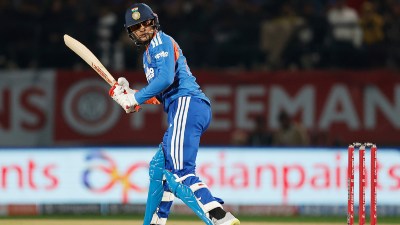Cave of flickering shadows
Advertising is the most powerful tool in the production and marketing chain, and has the power to make or mar a product.

Advertising is the most powerful tool in the production and marketing chain, and has the power to make or mar a product. Business houses lavish money on ad campaigns starting from market research, development of prototypes, pretestings and buying advertising space in the media. Some categories of products are known to thrive almost entirely on the strength of advertising. For instance, the cost of cosmetics is reported to be 10 per cent production and 90 per cent advertising!
Since powerful ads capture the attention and imagination of the people, especially the young, it is important to stay alert to its downside. It encourages rampant consumerism. While tobacco companies pump colossal amounts of cash into advertising, the number of tobacco-related deaths in India is estimated at about a million. Children and young people are particularly vulnerable. They are always trying to emulate their heroes and icons. Not surprisingly, 5,500 Indian youth start smoking every day, due to such dangerous images. The Union health ministry has done well to order a ban on smoking in public places (although its enforcement will be quite an uphill task).
We often hear the critics condemning such actions as ‘moral policing’, ‘value judgment’, etc. I think this is a ridiculous argument. In the same vein, even a thief or a smuggler can call his activity his ‘profession’ and resist a ‘value judgment’. The ‘it-is-my-business” kind of argument is fallacious. Yes, suicide is my business, yet it is a criminal offence and so is the abetment to suicide. In fact, the manufacturers and promoters of tobacco products could even be liable for murder of nearly one million Indians every year. I am surprised why the health ministry has not looked at the problem from the legal angle.
But on the other hand, it is possible to use this celebrity impact positively. Amitabh Bachchan’s pulse polio programme ads are a great success story. National AIDS Control Organisation had used Rahul Dravid to advertise condoms — a particularly thoughtful choice because he was considered a model of dependability. The ad showed the whole range of cricket’s protective gear — pad, helmet, gloves, etc. and a condom. Dravid’s punchline was, “just as I need to protect myself when I go to the pitch, I need to protect my life through safe sex as well”. This series of ads was extremely well received although we were apprehensive of criticism.
The advertisers have a great responsibility. They must ensure that their product promotion should not be at the cost of public health and wellbeing. Many companies set apart some budget for public service advertising (PSA) as a part of their corporate social responsibility. In the developed countries, they are very generous in this regard. How can one forget the US investment giant Warren Buffett donating over $30 billion dollars to the Bill & Melinda Gates Foundation when, with this huge money, he could have set up ten foundations in the names of his grandparents and grandchildren! Unfortunately, in India, it seems futile to expect companies to spend a respectable amount on public service broadcasting.
In this background, it is interesting to see a new trend of convergence of social and commercial messages. The first in this series of such ads was an advertisement of Tata tea where a toughie approaches a young man saying, “main apka vote maangne aya hoon” — in a threatening tone. The young man questions him about his qualifications and experience and floors him completely, and then to calm him offers him a cup of tea — Tata tea, of course. Another Tata ad which is currently running on TV asks the people not to “sleep” — in this case, referring to their not being alert to the inclusion of their names in the electoral roll. Both these ads are very powerful and both the messages — commercial and public service — come out equally strongly, proving that the two are not incompatible. We in the election commission of India thank Tata and his ad agency for this thoughtful innovation. On our part, we have switched over to Tata tea!
It is, however, disturbing to see a Reliance Mobile ad where a young man visits Shimla and calls his wife, on his Reliance mobile, for sure, and fondly recalls the ‘Vinod-loves-Veena’ type graffiti which he had inscribed on a monument. This ad is likely to influence many courting/dating young people to continue to vandalise the monuments. The ministry of tourism had carried a campaign where small children catch and shame the people writing/inscribing protestations of their love on these monuments. All the good work done by the tourism ministry will get neutralised by the new ad, courtesy Reliance mobile. I will strongly urge Reliance mobile to withdraw this ad from this campaign and pull up the advertising agency. It will also be interesting to know how much of public service advertising this company is spending on its corporate social responsibility. They will go up in my esteem if they underwrite the Tourism Ministry’s anti-vandalism campaign for a year as a recompense!
The writer is the election commissioner of India
- 01
- 02
- 03
- 04
- 05































